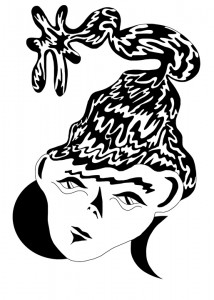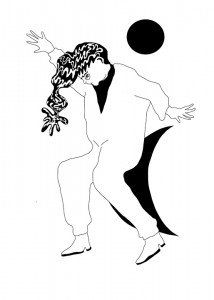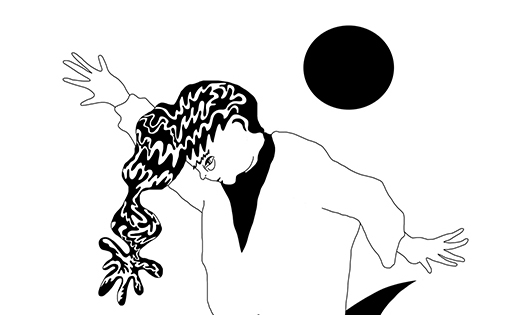The one thing I never counted on in my life was that a memory could be altered in retrospect. I always thought that the recollection was safe once its corresponding event had unraveled, ready to be tucked away neatly in the brain’s warm and fleshy folds. I was under the impression that no matter what might happen to a person next, whatever misfortunes might befall them, at least their memories would be pristine and untouched. It appears now that I was wrong.
I stand alone at my father’s wake. I’m vaguely aware of distant relatives and forgotten friends clutching at my elbows, but I can’t be bothered to think of words to say, let alone give them breath.
I have stopped what I was doing to stare at my brother. He is handsome and resplendent, even in the face of our father’s untimely death. All day he has been the circulating sun in this gloomy room. People’s faces spark with cheer when they see him – they seem privileged to bask in his warmth. And if he is the sun, then I am surely the moon; harping darkly in the background, any light I bring cold and uncomfortable.

It has always been so. Growing up, we trailed my father’s career as a translator around the world, the stage dressing of my early years changing every few seasons. First, a crumbling apartment in Venice, then a cold farmhouse in England, and lastly, a tired condo in Vancouver. Wherever we went, my brother shone like a sunbeam, attracting giggling gaggles of friends while I hovered on his periphery. I would stare at my brother, trying to glean some reflected charm, some measure of warmth.
However, I am staring at him now because he is speaking French. Some of my father’s old work colleagues are here, and my brother has graciously engaged them in conversation in their native tongue. There would be nothing wrong with this, nothing unusual at all, if it weren’t for a memory that comes pricking at my consciousness like a stomach ache.
Me, my father and my brother, sitting in the living room of that old English farmhouse one particularly brutal winter. My father had just returned from a trip to Paris, and was experiencing a funny kind of language hangover; French words just kept spilling out of his mouth. They were strange, exotic music to our childish ears, and slippery as they were, we tried to capture them in our mouths. We tried to conquer them, and my father tried to help.
Of course, my brother took to this easily. The words came to him fully formed and perfect, mythical creatures made real, while I remained stuttering and awkward. My brother talked over me, and I gave up; I remember tears stinging my eyes as he perfectly pronounced “je m’appelle” over and over again.

And so it surprised me when my father said; “You haven’t quite got it, son. Listen to your sister; her intonation is perfect.” They shared a funny look, my father’s eyes all narrowed and beady, and my brother’s wide and staring. Not the type to not be good at something, my brother got up and left the room, pretending to be bored, while I soared like a child pushed forward on a bicycle. The only reason I am still proficient in French today is that somewhere, deep down, I believed that it gave me some edge over my brother in my father’s eyes.
I had always thought that, since that day, my brother had left the tangled French words alone. That he’d relegated the language to being my thing, not his. But there he stands, speaking very, very good French. He catches my eye, and a smile plays on his lips – not a smug one, not even a happy one. Just one that knows.
It makes the old memory spin once more in my mind, and I understand it anew. That look between my father and my brother – I understood its importance, but not its meaning. It did not say, “This is your sister’s thing.” It said “This could be your sister’s thing. You, who have everything, should let her have something.”
I can see the lie. Of course, I can see the lie. But I also see the kindness. I see the sun dimming and stepping aside, so that the moon might shine bright.
x
Amy Stewart is an aspiring author and freelance copywriter on a round the world trip. Originally from the UK, she’s currently living and working in Vancouver. You can read more of her work and stories from her travels at bambi-jane.co.uk.


